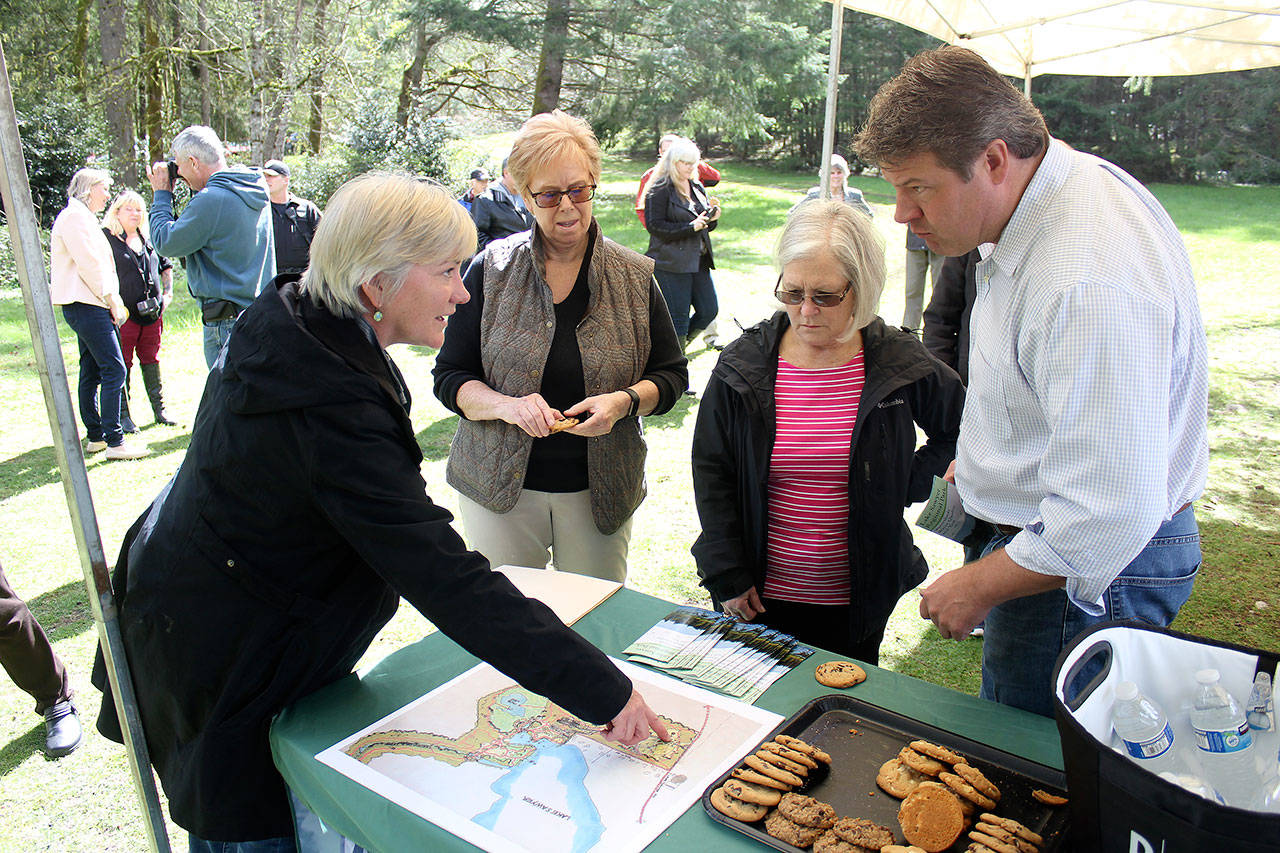Black Diamond’s Lake Sawyer Park Foundation celebrated Earth Day early last week with a ribbon-cutting ceremony for the new educational signs scattered around the park.
The Foundation was joined by city council members, King County Councilman Raegan Dunn, and members of the public for the sunny April 17 event.
“The new Interpretive Trail at Lake Sawyer will educate the visitors on the importance of keeping the lake water clean,” Dunn said in a press release. “I’m glad to have played a part in this project that will help preserve a treasure of the Black Diamond community.”
The whole project — which included designing and building five signs and a kiosk — cost $12,500, said Leah Grant, president of the Foundation, adding that it took roughly 300 volunteer hours to get everything together.
It takes just over a mile to walk to all the signs while sticking to the official paths, and each sign covers a different topic. The sign at the edge of Lake Sawyer explains why park-goers shouldn’t feed wild animals or cross streams at unauthorized areas, how fertilizers, storm water, and pet waste can negatively affect the lake, and why it’s important to plant native flora.
Another sign shows off the various kinds of wildlife you’re likely to find in the area, including the park’s residential bald eagles. A third explains how Lake Sawyer is monitored for health (the lake is considered oligotrophic/mesotrophic, or having a low-to-medium range of nutrients and middling water clarity), and a fourth, located near the Ravensdale Creek, examines the life cycle of salmon.
Finally, the sign at the kiosk, located near 312th Street, welcomes people to the park and gives more information about the watershed.
The project was entirely grant funded with money from King County Waterworks.
“Projects like these are fabulous for communities to get people together to appreciate their local treasures like this site, and to learn and teach each other about water quality,” said Elizabeth Loudon, the county’s Waterworks grant program manager. “King County is very involved in water quality, everything from treating waste water to restoring creeks and streams. This all ties together beautifully.”


